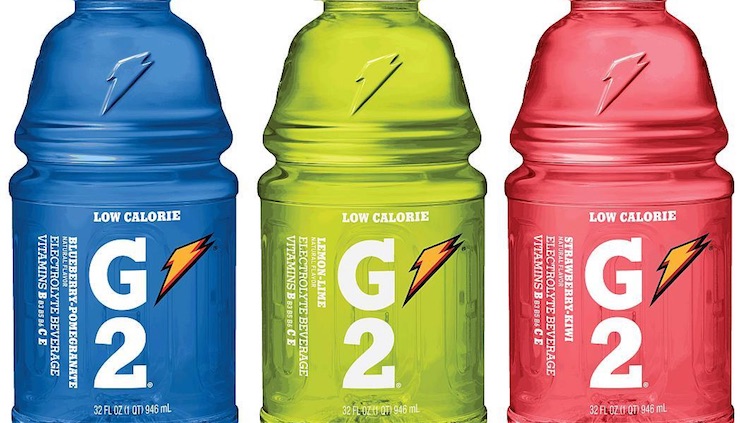The Latest Sports Nutrition News from Nancy Clark
While the Internet is an amazing resource for sports nutrition information, it is an equally amazing source of confusion. Too many soccer players spend too much time surfing the web, looking for nutrition advice about what to eat for optimal performance and good health. Because the Internet offers the spectrum from good to bad nutrition information, knowing whom to trust can be a challenge.
To try to identify the top nutrition preachers to athletes, I googled sports nutrition experts. (Of course, I’d hoped that my name would have come up first. Ha!) To my dismay, the first expert listed on the page informed me about how I could create my own brand of sports supplements and sell them to make lots of money. Credible experts came lower on the page.
But how are soccer players supposed to know who’s who in the nutrition zoo?
To help you find trust-worthy websites for general and sports nutrition information, I have compiled some of my favorite sites. Perhaps you will find them helpful, as well.
General Nutrition Websites
For information about day-to-day nutrition questions, Marion Nestle’s site, offers daily posts. Dr. Nestle is a New York University nutrition professor with degrees in molecular biology and public health nutrition. She delves into hot topics, such as: Is High Fructose Corn Syrup good, bad or indifferent to health? Are organic foods worth the money? Is red meat good or bad? She offers a balanced, well-educated perspective.
The website for The Center for Science in the Public Interest offers “unbiased advice to help you eat healthfully and live longer.” Part of CSPI’s mission is to ensure science and technology are used for the public good (i.e., not to create the tastiest junk food). CSPI has changed how we think about trans fats, soft drinks, fast foods, and marketing food to kids. Among the abundant consumer information, CSPI teaches us how supermarkets get us to buy more junk food. As a watchdog for the food industry, CSPI gets some criticism for being a bit extreme, but others value their blunt honesty.
Sports Nutrition/Sports Science Websites
For sports nutrition information, I recommend the Gatorade Sports Science Institute. While you might think that websites funded by Gatorade would be commercialized and biased towards their products, the Gatorade Sports Science Institute is the non-profit, educational branch of Gatorade.
Their mission statement asserts that GSSI is committed to helping athletes optimize their health and performance through research and education regarding not only hydration, but also the effects of nutrition on the human body before, during and after exercise. Articles in their Sports Science Exchange area include a range of topics, such as GI distress, antioxidants, immune status, brain function, and protein, as well as abundant information, of course, regarding all you want to know about hydration.
 Other industry-funded sports nutrition sites with trust-worthy information provided by respected nutrition experts include www.powerbar.com/nutrition-in-training. The sections on fueling & hydrating, refueling and recovery, and nutrition science include both written tips as well as short video-clips of interviews with respected researchers who suggest ways to optimize performance via smart fueling practices.
Other industry-funded sports nutrition sites with trust-worthy information provided by respected nutrition experts include www.powerbar.com/nutrition-in-training. The sections on fueling & hydrating, refueling and recovery, and nutrition science include both written tips as well as short video-clips of interviews with respected researchers who suggest ways to optimize performance via smart fueling practices.
For sports nutrition information presented by a leading exercise physiologist who is not only a researcher but also an Ironman triathlete, look at www.MySportScience.com. Created by Asker Juekendrup PhD of the Netherlands, the site provides an unbiased, objective view of a wide range of sports science topics. The infographics that appear at the top of his blog are highly educational for visual learners. His blog addresses not only nutrition topics …
Should you eat protein before going to bed?
but also overlooked information, such as why some athletes respond to sports supplements while others are non-responders. Asker even offers a list of sports nutrition scientists you might want to follow on twitter.
“How-to” Sports Nutrition Websites
If you want a bit less scientific information and more “how to” nutrition nuggets, surf on over to the USOC website. You will find an assortment of sports nutrition fact sheets, including a graphic of what an Athlete’s Plate should look like on an easy, moderate, or hard day of exercise. Other fact sheets will answer your questions about alcohol (Did you know a Pina Colada has 380 calories?), caffeine, and vitamin D, among many other topics. The video clips are filled with nutrition tips, and the recipes encourage you to make your own sports foods. (Homemade sports drink, anyone?)
 The Australian Institute of Sport also offers an array of nutrition information. In their section on Sports Supplements, you will find sports foods and supplement ingredients divided into four groups based on current scientific evidence that determines whether a product is safe, legal and effective in improving sports performance. For example, caffeine, a proven ergogenic aid, is in Group A, while glutamine and HMB are in Group B, suggesting they are deserving of more research. Substances with little meaningful proof of beneficial effects are in Group C, and banned substances are in Group D.
The Australian Institute of Sport also offers an array of nutrition information. In their section on Sports Supplements, you will find sports foods and supplement ingredients divided into four groups based on current scientific evidence that determines whether a product is safe, legal and effective in improving sports performance. For example, caffeine, a proven ergogenic aid, is in Group A, while glutamine and HMB are in Group B, suggesting they are deserving of more research. Substances with little meaningful proof of beneficial effects are in Group C, and banned substances are in Group D.
My stance on supplements remains solid: Why take them if you have not yet optimized your daily diet? The blog on my website can help you do just that: fuel well and win with good food!
THE BOTTOM LINE
Performance starts with good nutrition. If you make the effort to travel to soccer games and tournaments, you might as well make the effort to eat well. No amount of training will outperform a bad sports diet.

SIDEBAR: Nutritional and medical advice changes with new discoveries and interpretations. Always check with your medical provider and/or nutritionalist for what is best for you and your family. And research and read information on nutrition!
Boston-area sports nutritionist Nancy Clark MS RD counsels both casual exercisers and competitive athletes in her private practice in Newton MA (617-795-1875).
She is author of the best-selling Nancy Clark’s Sports Nutrition Guidebook and co-author with Gloria Averbuch of Food Guide for Soccer: Tips and Recipes from the Pros.






